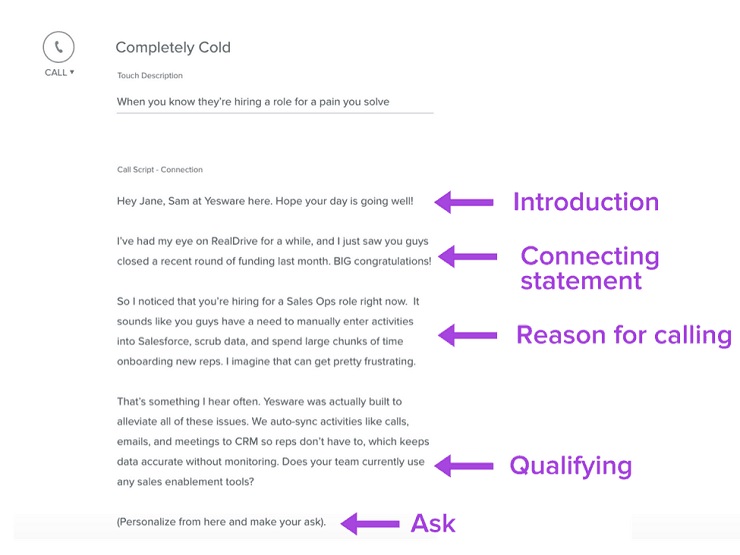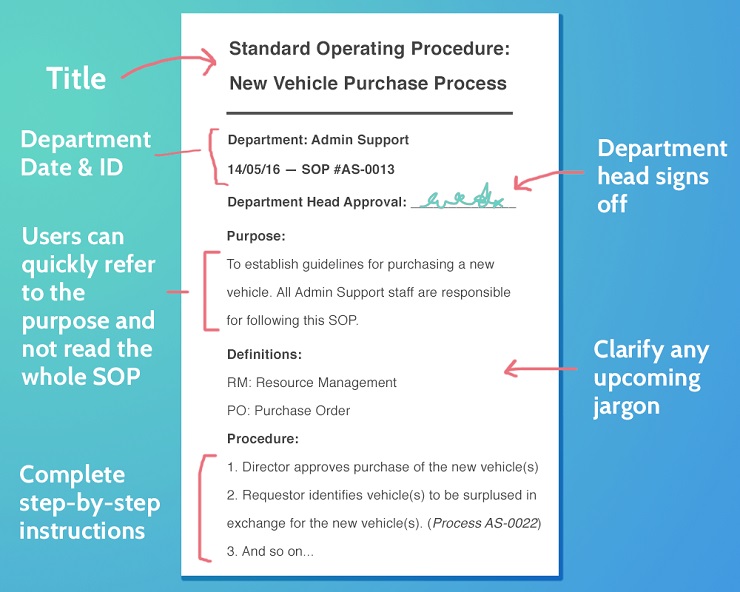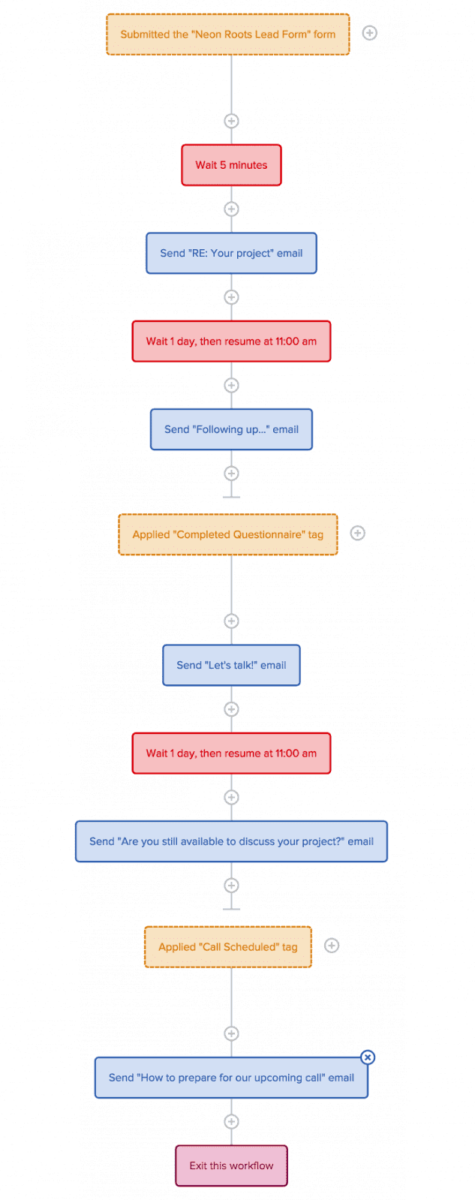If you’re thinking about starting your own consulting business, you need to start with a strong foundation.
There’s a lot you should do before you even consider starting your consulting business or closing your first client. The key is to focus on the things that matter the most and ignore the rest.
If you spend too much time working on the foundation, you may never start building the business itself. So, what should you spend most of your time on?
Here’s our checklist of nine things you need to do before starting your consulting business:
- Define your target audience and offer
- Set up a domain, hosting, and website
- Set up a marketing channel
- Craft a basic sales script
- Create a strategy for responding to typical sales objections
- Put operational systems and procedures in place
- Ensure that you have incorporated your business
- Hire an accountant or bookkeeping service
- Rent or buy an office or specific place of work
Editor’s note: This article was originally written by Ivan Kreimer but has since been updated by Nathan Chan who is highly experienced in consulting. Nathan ran his own private consulting firm before starting Foundr Magazine and is an expert in the space.
1. Define Your Target Audience and Offer
If you’re serious about starting a consulting business, you need to start thinking like a successful business owner.
Business owners must have the ability to define a specific offer that’s relevant to a specific audience.
In order to guarantee success, you need to clearly outline and define your target audience. The way to do this is to start by defining your area of specialization. Think about your existing skills, your past results, your work experience, and your interests.
READ MORE: Psychographics 101: Everything You Need to Know; How It’s Used in Marketing
You need to ask yourself these questions:
- What specific skills do you have that you can use to help other people? For inspiration, research other comparable consultants and check to see how they present themselves and how much they charge.
- What type of results have you brought to previous clients or companies using your skills? Focus on tangible business results you can use to sell yourself and prove you are worth the price.
- What do your clients want? What are they willing to pay for? Talk to potential clients and explore the challenges that they experience.
- What do you enjoy doing? Passion isn’t all that matters when you’re figuring out how to start a consulting business, but it is important.
By the end of your exploration, you should have a positioning statement that clearly summarizes what you want to do, who you want to help, and how to do it.
In his book Crossing the Chasm, Geoffrey Moore offers the following template for a positioning statement:
“For (target customer) who (statement of the need or opportunity), the (product name) is a (product category) that (statement of key benefit – that is, compelling reason to buy). Unlike (primary competitive alternative), our product (statement of primary differentiation).”
EXCLUSIVE FREE TRAINING: Successful Founders Teach You How to Start and Grow an Online Business
2. Set Up a Domain, Hosting, and Website
If you are going to start an online business, you should ideally have a strong online presence.
You need to have a domain that represents your brand, hosting that will give it a home, and a website that highlights what you can offer.
Start by picking a domain that’s representative of your brand. If your company is called “John Doe Enterprises,” ideally, your domain should be “johndoeenterprises.com.”
If you can’t find a .com for your exact company name, then use a variation with the help of a prefix “the” or suffix “agency”. If you need, you can get an alternative top-level domain like a .org or .co.
Then, you’ll need to set up web hosting. While budget web hosting services might seem attractive price-wise, stick to a premium VPS host like WPengine if you’re serious about your online business. Speed and load times are ranking factors that can either make or break your online business.
READ MORE: The 3 Best Low-Cost Businesses to Start with $1,000 or Less (Even $0!)
After this is done, and depending on the nature of your online business, you may need to install WordPress on your site. All of the largest hosting companies, including the ones mentioned above, come with a feature called “1-click WordPress installation,” which does exactly what it says on the tin.
Next, get a premium theme, which you can purchase from companies like ThemeForest and StudioPress. If you can afford it, get a front-end developer to custom design your theme to fit your company.
Now you have all the technical stuff set up, you need to write some basic copy.
Start by explaining what you do and who it serves. This information is known as your value proposition. Make sure to include some examples of past work, recommendations, or previous clients as evidence of your skill.
If you have no past clients, consider your past employers. If you have a day job doing work similar to what you plan on offering as a consultant, ask your former bosses and co-workers for some testimonials.
3. Set Up a Marketing Channel
Word-of-mouth is a great way to get started, and it works even better if you have at least one other clear marketing channel that you can trust (and control) to bring you a sustainable stream of leads every month. These channels include:
- Social media: LinkedIn, Twitter, Instagram.
- Paid ads: Google Adwords, Facebook ads, retargeting.
- Organic search: Google.
- Content marketing: Blogging, guest blogging, webinars, podcasts.
Each of these channels represents a world unto itself, so think carefully before picking one. The key is to focus on just one channel, and master it until you start to get a steady volume of leads.
READ MORE: The Complete Guide to Getting Clients for Your Consulting Business
If you are going to utilize podcasts, round up a few dozen podcast interviews or topics as a backup.
You may not see results right away, most marketing channels take time to gain traction and then to kick in. That’s exactly why you want to start this work before you need the leads. After six months to a year, you should start to attract interest and that’s when your business will start to grow.
A survey by Nielsen on consumer trust on advertising reveal that 84 percent of the people surveyed said they still relied on word-of-mouth recommendations from family and friends. That’s because most consumers trust the recommendations of others over advertising or marketing but this does not mean that other marketing channels should be ignored.
Social media is a particularly critical tool when it comes to communicating with current and potential clients, and the use of social media among e-commerce brands won’t be going away any time soon.
The problem with relying on referrals is that it is not a sustainable or consistent stream for any consulting business. Some months you may have too many clients, and other months you may have none.
In other words, you won’t be in control of your destiny. Setting up and maintaining at least one marketing channel gives you the best chance of securing new clients sustainably and consistently.
4. Craft a Basic Sales Script
Steven Pink, author of the book To Sell Is Human, said,
To sell well is to convince someone else to part with resources — not to deprive that person, but to leave him better off in the end.
Often sales are seen as a zero-sum game, where the salesperson tries to close a deal at all costs.
In the case of a smaller business, it’s often the business owner who is responsible for the sales. For them, it’s all about building trust and delivering on the needs of their leads.
Sales can be a tricky skill to master. Amateur salespeople often fall into the “What-I-Can-Do” pitch, where they talk about the things they can do, rather of focusing on the problems their prospects have.
READ MORE: How Much Should I Charge as a Consultant? A Consultation Fee Breakdown
Instead, you want to lead the conversation and make sure that you identify the client’s needs to see if they align with your skills. After, and only after, you’ve figured out there’s a fit between their company and yours, you can start talking about your services and prices.
A sales script brings structure to this often messy process. It will help you how to start, what to ask, when to ask it, and how to gather up valuable information that you can then use to sell yourself.
Here is an example of a basic sales script:

A sales script doesn’t have to outline the conversation; rather, it should guide you. Some questions you can ask include:
- What do you do?
- What challenges do you currently face?
- If you had a magic wand, what would you change in your business?
- How much money does it cost you?
- How much money are you willing to invest as a solution to this?
The script should be flexible, and some questions may not be required at all. At the end of the day, your intention should be to understand the client.
EXCLUSIVE FREE TRAINING: Successful Founders Teach You How to Start and Grow an Online Business
6. Create a Strategy for Responding to Typical Sales Objections
Throughout the sales process, you will run into objections.
The prospect may think you’re too expensive, they may struggle to grasp what you can deliver or they may think they can solve their problems on their own.
Assuming you want to work with that client and you think you can indeed help them, your job is to overcome their objections.
Among the many sales objections that will arise, your prospect will want you to justify how much you charge for your services. This objection, common among new consultants without proven track records, often drives people to undersell themselves.
READ MORE: How to Write the Perfect Consulting Proposal With The Best Tools and Templates
You may think that because you need a client, you need to lower your price. The problem is that you often end up with less money than you should have, and underselling yourself has the tendency to establish a bad business relationship.
Founder of sales software tool Close Steli Efti says that “When someone tells you your product is too expensive… you simply haven’t communicated enough value.”
If you do good work, identify your client’s needs and fulfill them, ask good questions, and know how to justify your value then you should never underprice yourself.
An often overlooked part of consulting as a business, operations are made up of systems and procedures that allow you to systematize the work as needed. Operations allow consultants to separate themselves from the work and instead focus on making sure their clients can get the desired results.
6. Put Operational Systems and Procedures in Place
For the purpose of your business operations, a system is an interconnected set of tasks that work together in order to achieve a certain goal.
A procedure (also known as SOP, or standard operating procedure) is a set of exact steps needed to achieve a goal. For instance, invoices for your clients, creating reports, carrying out a specific analysis, running of software, etc.
Here is an example of a standard operating procedure:

Many systems can be automated. For example, you can have a system for handling incoming leads, similar to the one Brennan Dunn recommends. Here is a snippet from an automation flow he’s developed:

This automation takes a lead through an automated email sequence that starts by asking them some basic questions that you can use in a sales call.
After filling out this questionnaire, the lead gets an automated link to schedule a call with the consultant, and a follow-up email.
All the consultant needs to do is encourage the lead to complete the questionnaire, the rest is done automatically. This system reduces back and forth associated with scheduling calls, and it helps to reduce the time spent on non-essential tasks.
You can use similar systems using a marketing automation software tool or an all-in-one automation suite like Zapier.
Procedures, similarly, allow you to systematize a specific task (or set of tasks) so you have more time to focus your attention on providing high-quality service. You can write the tasks needed to achieve the goal of the procedure, document everything in detail, and outsource it to someone, to lower your costs, your time, or both. Otherwise, you can carry out the procedure yourself, only with greater ease.
Anything that can be documented and/or delegated can be turned into a procedure, Ryan Stewart, the founder of Florida-based SEO agency Webris, says that procedures have been one of the keys he’s used to growing his agency to over seven figures.
Here’s an Stewart explaining an SOP for his SEO services:

You don’t need to get too caught up with getting your systems 100 percent correct at this stage. Your systems and procedures will change as your business grows. You can adapt as you get clients and you realize what works best for you.
What’s important is that systems and procedures bring discipline and uniformity to your service. Having everything running smoothly also helps you to establish a good reputation and encourages business growth.
7. Ensure That You Have Incorporated Your Business
In theory, you could start generating income from your consulting business quickly. But the risks involved in doing business on your own are high, and it is advised to consider setting up a legal entity that backs you up.
E.J. Dealy, CEO of The Company Corporation, explains that incorporating such a business has many benefits:
- Personal asset protection: A business gives you limited liability, your personal assets are separate from your business, so if you lose a suit, you won’t lose a dime except for the money you’ve invested in your business.
- Additional credibility and name protection: Consumers, vendors, and partners frequently prefer to do business with an incorporated business.
- Perpetual existence: The business can continue existing after you change it or sell it.
- Tax flexibility: Depending on your jurisdiction (the country, state, and county where you incorporate), you can lower your taxes by incorporating in special low-tax jurisdictions.
- Deductible expenses: Both corporations and LLCs may deduct normal business expenses including salaries before they allocate income to owners.
8. Hire an Accountant or Bookkeeping Service
As an entrepreneur, your energy should be focused on running your business and less focus on administrative tasks like accounting.
Having an accountant that keeps your books organized is a great decision for any new consultant.
A study by Xero found that 53 percent of small business owners don’t use an accountant at all. Even more shockingly, 27 percent use pen and paper to keep track of their finances.
The truth is, there’s no hard rule on how to handle your accounting. As long as you keep your books in good shape and avoid any tax liabilities, you’re good.
But consider the benefits that having an accountant can bring to your business.
Accountants aren’t just experts at tax filing. They give you a complete overview of your finances, identifying oversights, helping you manage expenses and revenues, or suggesting potential tax deductions.
If you feel you’re not ready to work with an accountant, you can still make your own bookkeeping easier with a tool like Xero or Wave. Still, you should definitely make sure you get an accountant’s help before filing your taxes (at least the first time) so you avoid any potential penalties.
9. Rent or Buy an Office or Specific Place of Work
Last but not least, you need an office where you can work. You don’t need a fancy office to run a business, you only need a quiet space where you focus on your work.
Your office should have a fast and reliable internet connection, space for a work desk, and an environment that allows you to concentrate. This can be a quiet place, a coffee shop, your bedroom, or any place that suits you.
As Inc report, the average person spends a third of their life at work, it is important to feel comfortable and relaxed in your surroundings if you want to be able to produce your best work.
You can consider working from home, from a co-working space, or a mixture of both. As long as you can work to the best of your abilities, you can call that place your office.’
EXCLUSIVE FREE TRAINING: Successful Founders Teach You How to Start and Grow an Online Business
Complete Your Checklist, and Blast Off!
Before you start your consulting business, run through this checklist, and make sure you cover all of your bases. Here’s a summary of all of the points we covered above:
Starting Your Consulting Business Checklist
Marketing
- Develop your target audience and offer
- Set up a domain, hosting and website
- Set up at least one marketing channel
Sales Generation
- Craft a basic sales script
- Create a strategy for responding to typical sales objections
Operational
- Put operational systems and procedures in place
Administrative
- Ensure that you have incorporated your business
- Hire an accountant or bookkeeping service
- Rent or buy an office or specific place of work
If there’s anything you need help with or don’t understand, let us know and we’ll be happy to help.
Now it’s time to hear from you:
Are you looking to start your own consulting business? Did your checklist help? Let us know in the comments below!
The post Checklist for Starting a Consulting Business: 9 Steps to Set Yourself Up for Success appeared first on Foundr.
Author: Nathan Chan
Source : https://foundr.com/starting-a-consulting-business-checklist
Date : 2020-08-31T05:02:00.000Z
